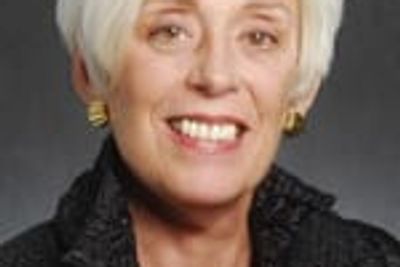The past soon will become a part of the future for Nashville’s GLBT community, thanks to a documentary detailing the community’s struggles and triumphs over the years.
The Brooks Fund History Project is a multimedia historical and archival project that, when finished, will be folded into the Nashville Public Library’s special collections, which includes oral histories, footage, photos and more on most every fact of Middle Tennessee life.
The idea for the documentary came out of several discussions within the GLBT community and its leaders regarding a need to chronicle and preserve the past, and to showcase the evolution of gay and lesbian lives in this area over the last century, give or take a decade. While many may think that gay life here is fairly repressive, it’s nothing compared to how things were in the 1950s, for example, and that’s worth noting, said Iris Buhl, a community volunteer and chair of the project’s steering committee.
“We are fortunate to have been able to collect a really wide variety of people to speak with us so far,” Buhl said. “We hope to have 25 interviews when we are finished, and so far we have 14 individuals, and 17 total if you count the couples.”
Buhl and the committee, which includes author John Bridges, producer/writer Deidre Duker, attorney James Mathis, Vanderbilt professor Dr. Roger Moore and also Dr. Dan Cornfield, director of the Vanderbilt Institute for Nashville Studies, have spent more than a year so far working on interviews and also raising money for the production. There’s no set timeline for finishing, but there’s a bit of pressure to wrap things up if only because of the age of some participants.
“The whole thing continues to evolve,” Buhl said. “We originally didn’t plan on doing community-observer interviews, but we’ve done two of those with John Seigenthaler and John Egerton. We also didn’t plan on couples, but it became apparent in some of the stories that those partnerships needed to be captured. But it’s not like we can just go round up a few more people and wrap this thing up; I think we’ll know when we’re done, though.”
Buhl is quick to thank Donna Nicely, director of the Nashville Public Library, as well as library board chair Margaret Ann Robinson and others there for being not only being willing to, but very enthusiastic about, housing the project.
“You couldn’t ask for anyone more enlightened and supportive of community activities, and about the kinds of things that need to be in a collection, than Donna,” she said. “She and Margaret Ann were a dream; I feared we would get resistance when I trotted in there, and they were nothing but glad to have us.”
The community itself is enthusiastic as well, and Buhl hopes that translates into more requests for inclusion in the interview process, as well as the donation or use of books, audio- and videotapes, newspapers and other media materials that can be copied, filmed and otherwise included in the final project. But it’s the people, she says, that have already set the tone for the piece.
“Talking to us has been an act of courage for every person,” Buhl said. “Many have to ponder whether they can be involved, whether they can speak out about how things were, or are. This is not a process that you can rush, and people have been remarkable about their participation.”
For more information, visit thebrooksfund.org.
